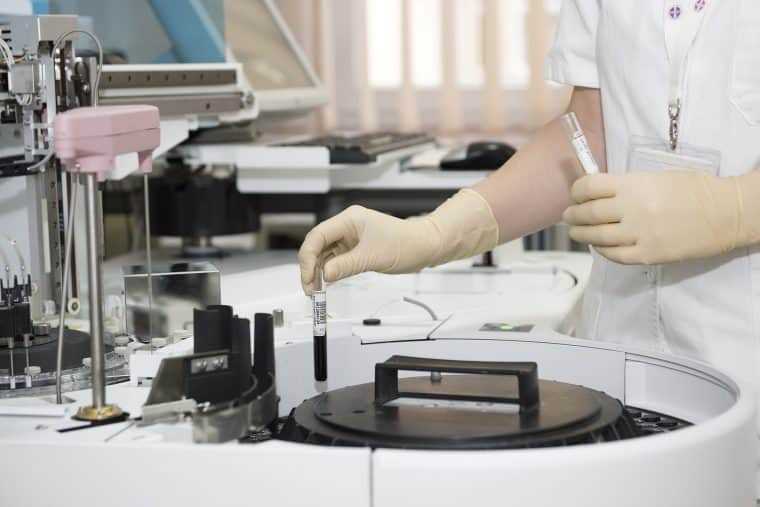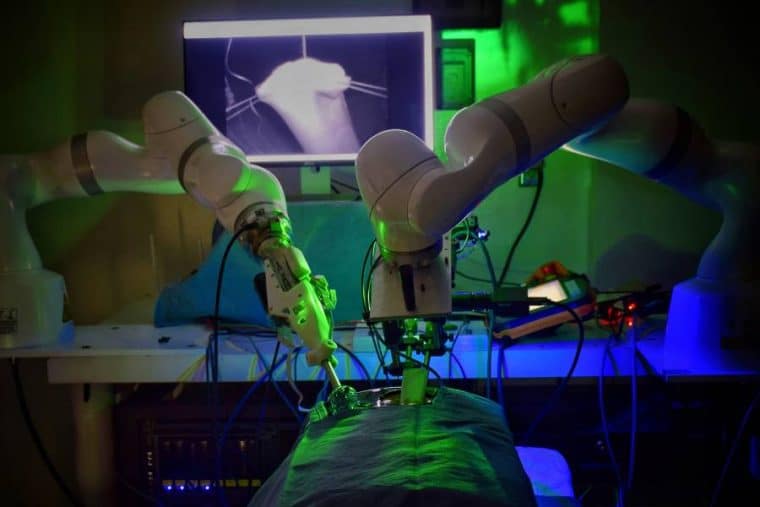
Artificial intelligence (AI) is slowly revolutionizing healthcare, driving innovations in clinical operations, drug discovery, and more.
From its ability to diagnose patients more accurately and quickly to identify new drugs that can treat complicated and long-standing medical conditions, AI is proving to have a significant impact on healthcare.
In the first place, the technology is set to play a major role in diagnostics, which is known as the foundation of healthcare.
By analyzing patient records, medical scans, and other data, advanced AI systems can predict a patient’s ailment or disease often more accurately and quickly than human experts.
For instance, an AI system, developed by researchers in Germany, can identify small bone fractures in CT scans to determine whether a patient has osteoporosis.
“Our program can run in the background during examinations like these,” lead author Eren Yilmaz said in an interview with Free Think.
“It automatically inspects the spine and gives an indication of any fractures of the vertebrae that might otherwise not have been detected.”
AI Can Revolutionize Drug Discovery Process
By identifying “druggable” targets, the ability of a protein to bind small, drug-like molecules with a high affinity, advanced AIs can accelerate the drug discovery process without causing adverse side effects.
For instance, biotech company Verge Genomics discovered a protein called PIKfyve after feeding the AI over 11 million data points from genetics databases and ALS patient tissue samples.
The AI then suggested the use of a molecule called VRG50635 to inhibit its production, providing relief to patients suffering from conditions such as Lou Gehrig’s Disease, Verge CEO Alice Zhang said in a blog post last year.
“We are proud to be not just one of the few AI-driven biotech companies to have made it to the clinical stage, but also one of the first to bring forward a novel clinical compound against a novel target, that was entirely discovered and developed internally on our platform.”
In yet another example, biotech company Integrated Biosciences developed AI to discover medicines that help clear senescent cells, which are linked to age-related diseases.
AI to Give Life to Autonomous Surgical Robots
Apart from diagnostics and drug discovery, AI is also revolutionizing the field of surgery.
Autonomous robots can overtake physicians and surgeons, providing quick and precise surgery with minimal pain or risk. However, these robots depend on the know-how and skills of the physician operating them.
For instance, Johns Hopkins University reported the first instance of a robot performing autonomous laparoscopic surgery, suturing together two ends of the intestine.

According to senior author Axel Krieger, the robot was superior in terms of speed and precision compared to a human surgeon.
“By incorporating novel suturing tools, imaging systems, machine learning algorithms, and robotic controls, the STAR system is equipped to overcome the challenges of autonomous laparoscopic surgery in soft tissues.”
It is worth noting that despite the recent advances in the AI field, patients are still apprehensive about accepting AI as a treatment mechanism.
In a recent Pew Research Center survey, around 60% of respondents said they felt uncomfortable if their diagnosis and treatment were reliant on AI.
Similarly, the Yale Cancer Center conducted a survey in 2022, where 70% of the respondents felt uncomfortable receiving a diagnosis from an AI that could not explain how it reached its conclusion.
Read More:
- How to Buy Pfizer Stock in 2023
- Best Penny Stocks to Buy in May 2023 – Top Performers
- Best Ethical Investing Stocks to Watch in 2023
What's the Best Crypto to Buy Now?
- B2C Listed the Top Rated Cryptocurrencies for 2023
- Get Early Access to Presales & Private Sales
- KYC Verified & Audited, Public Teams
- Most Voted for Tokens on CoinSniper
- Upcoming Listings on Exchanges, NFT Drops